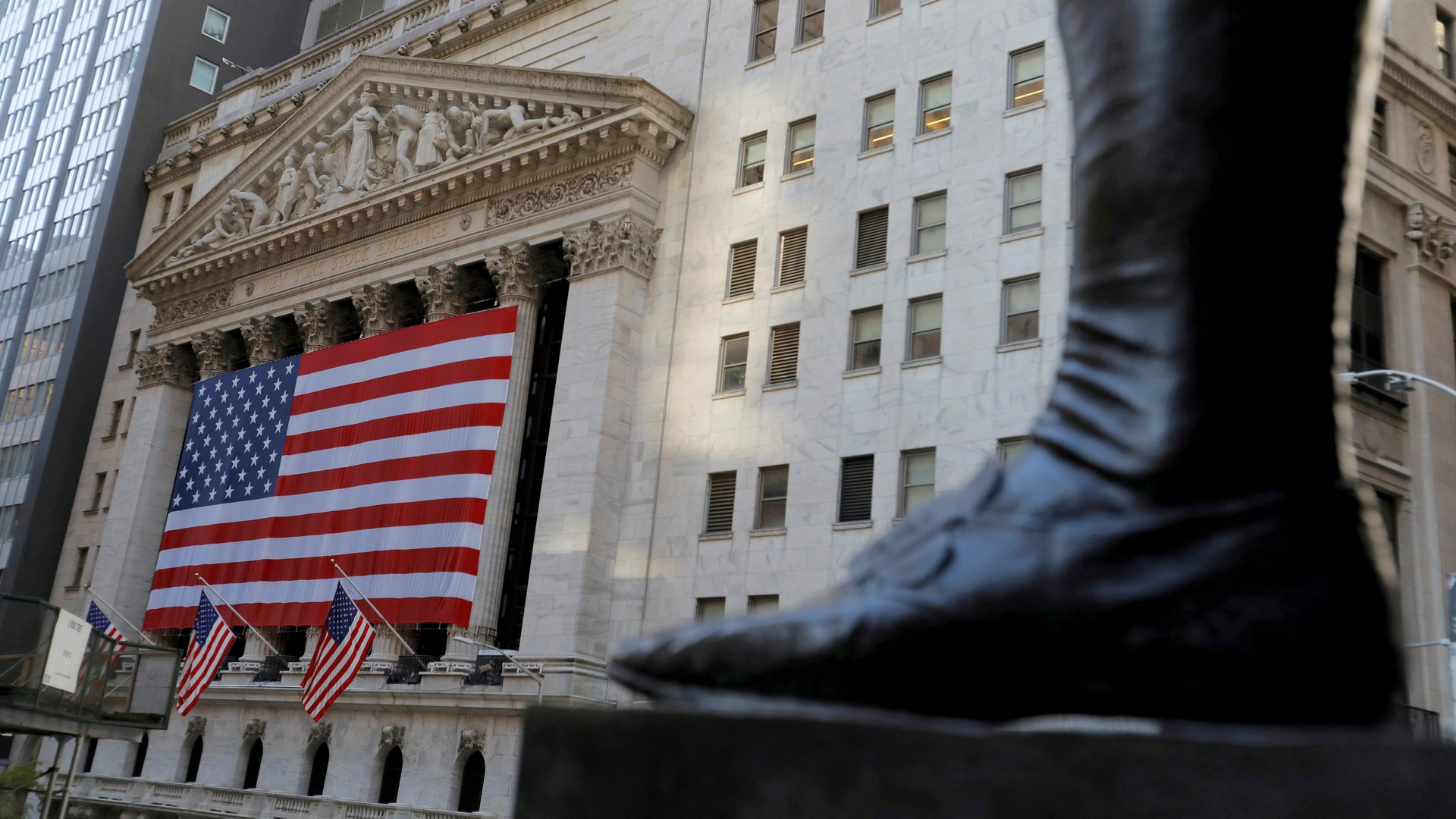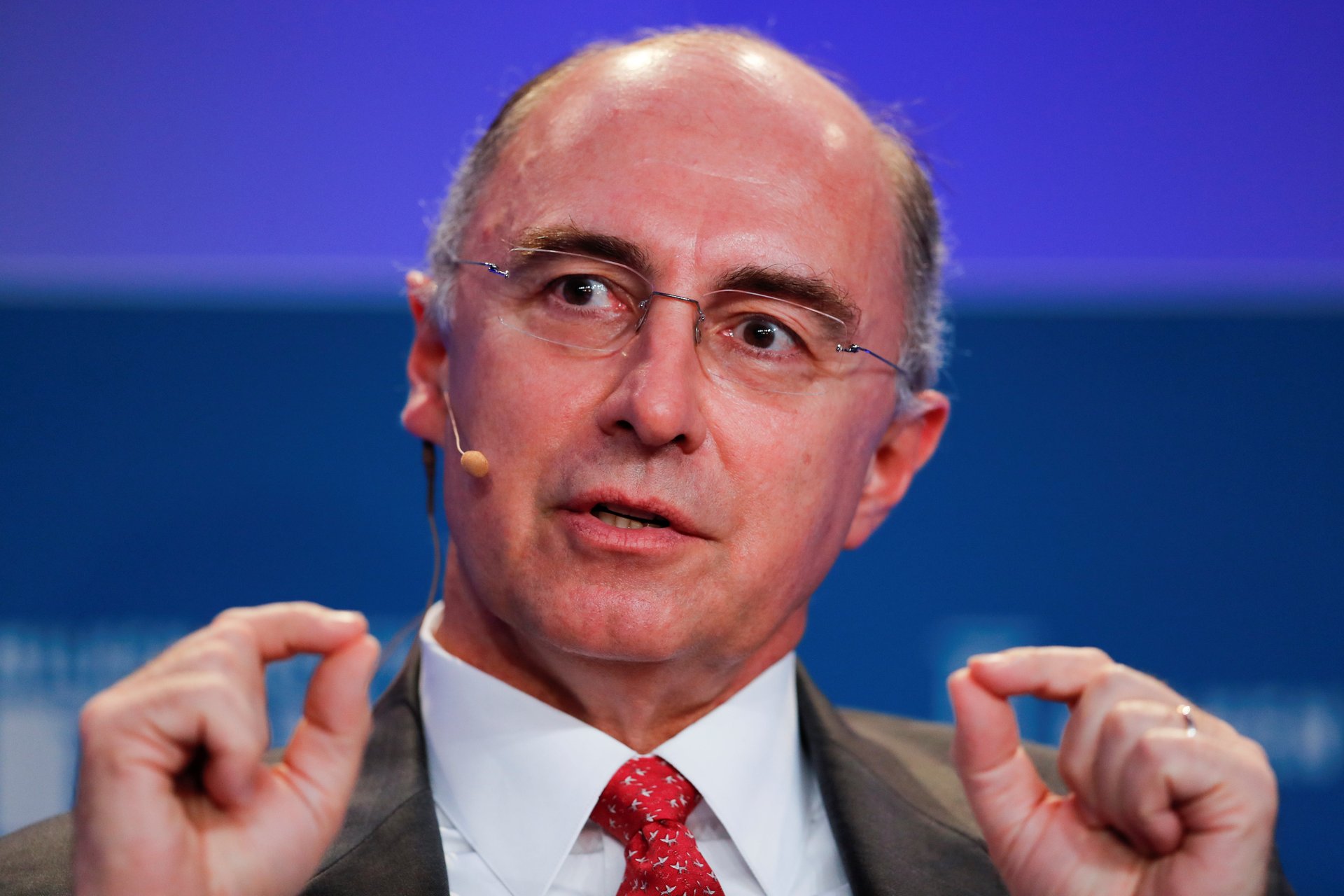Why SPACs are booming in New York but not in London
Xavier Rolet, the former CEO of London Stock Exchange Group, has jumped into the boom in “blank check” companies. But instead of going public in London at his old employer, the special purpose acquisition company (SPAC) he joined raised money in New York.


Xavier Rolet, the former CEO of London Stock Exchange Group, has jumped into the boom in “blank check” companies. But instead of going public in London at his old employer, the special purpose acquisition company (SPAC) he joined raised money in New York.
“The US market is really the market that knows how to price future growth,” he said in a telephone interview. And as for SPACs: “It’s a structure which gives you speed, opportunity to invest, and helps convert and monetize some promising privately held companies that have successfully positioned themselves to take advantage of technological changes in a post-Covid world,” Rolet said.
SPACs have been on fire in the US, raking in more money last year than in the entire decade before. They’re called “blank check” companies because they get funds from investors in an IPO to go out and find promising investment targets. And while Rolet thinks SPACs will remain popular in the US, he says there will have to be some changes in Europe before tech investing catches up with the other side of the Atlantic. The US had more than 190 SPAC offerings last year, according to Refinitiv data. Europe had three.
Rolet is one of the directors of Golden Falcon Acquisition Corp., a SPAC that raised $300 million on New York Stock Exchange late last year and is focused on technology and fintech targets based in Europe, Israel, the Middle East, or North America, according to a filing. Makram Azar, a former executive of British bank Barclays and private-equity firm KKR, is Golden Falcon’s chief executive.
SPACs have been around for years, but they’ve boomed in popularity along with a wider frenzy in IPOs. After raising money in a public offering, the funds are held in a trust account, where they can typically stay for 18 to 24 months while the SPAC seeks out an acquisition. Shareholders can vote against the deal if they don’t like it and get their money back. Investors can receive interest on their funds while the search is taking place.
SPACs haven’t always been a great bargain for people who bet on them—research suggests that many end up trading for less than their IPO price. Typically, they are structured so the management team gets shares that dilute the investors’ stake, and investment banking fees also eat into their investment. That said, blank-check companies have lately attracted upper-crust management teams with Fortune 500 executive management experience. A Harvard Law study indicates that deals sponsored by higher-quality managers tend to perform better, and some recent structures have been more friendly to investors.
Why Europe doesn’t have a SPAC boom
But Rolet, a Frenchman who started his finance career at Goldman Sachs, doesn’t think Europe will get its own SPAC boom for tech companies until there are some regulatory and tax changes.
“Europe simply does not have the equity capital markets that understand and price innovation appropriately,” Rolet said. “And therefore it continues to suffer substantially in terms of the retention of tech businesses, because they find it easier to scale up in the United States.”

Rolet led the London Stock Exchange Group for nearly a decade, and he has a lot of good things to say about entrepreneurship in Europe—”targets in Europe, clearly, are abundant,” he says. He even thinks there’s plenty of capital. The trouble, in his view, is that institutional investors in the EU don’t have the expertise for equity investing in tech. The tax system incentivizes debt investments and can penalize equity holdings. Regulations make it difficult for insurance companies, for example, to ramp up their stock holdings. He says that’s why big institutions lack the talent and know-how for investing in next-generation tech startups.
“I’m not talking about family offices, the private banks—they understand that because that’s how they make their money,” he said. “But the institutions lack expertise in technology. They really do, by and large, compared with the United States.”
“Lost decade”
Funding, and the scope for mega-rounds of cash, is seen as a key reason why Europe hasn’t spawned a Google- or Tencent-sized tech titan. But there are signs that the region has narrowed the gap recently. After a “lost decade in the 1990s,” European tech companies’ share of global market cap has grown for the past 20 years, according to data compiled by Atomico, a venture capital firm. The company’s research shows that 15 of the 16 European companies that added more than $1 billion of market capitalization in the past five years did so from a European public market.
Alex Watkins, co-head of equity capital markets in Europe, Middle East, and Asia for JPMorgan, says the pipeline for European IPOs this year is “weighted toward growth companies, with a big representation from tech.” He says SPACS will be a big topic in 2021. “They are certainly coming to Europe,” Watkins said.
Analysts at Goldman Sachs think the European tech economy is “at a tipping point,” according to a research report this month. The investment bank cited a more favorable political backdrop, the digital acceleration from Covid, and a faster pace of venture capital investment, which has doubled in the past three years (although it’s still three-times smaller than in China and the US). At least 20% of the funds from the EU’s €672.5 billion ($818 billion) Recovery and Resilience Facility, which is designed to help the region’s economy rebound from the pandemic, is meant to go into digital transformation.
SPAC support
In the UK, much hope is being placed on the government’s listing review. Post-Brexit Britain has little in the way of a deal for financial services with the EU, and a revamped market for IPOs could help the country compete with markets on the continent as well as those in Hong Kong and New York. The review will consider things like dual-class shares, which some tech founders have favored as a way to maintain control over their companies.
Alasdair Haynes, founder and CEO of European stock exchange Aquis Exchange, says he will make SPACs a topic of discussion in the review. “We are supportive of Spacs,” he said.
For Rolet, the UK review highlights the promise of the SPAC boom. “The fact that the UK is reacting and looking to upgrade and modernize its own regulatory framework is a testimony that this is going to be with us for a while,” he said. “This will only work in those markets where there is a deep pool of sophisticated investors, who actually do understand technology. You can have the perfect regulatory framework, the most competitive, but if you don’t have the investors, if the understanding of technology and innovation is not there, liquidity will be elsewhere.”